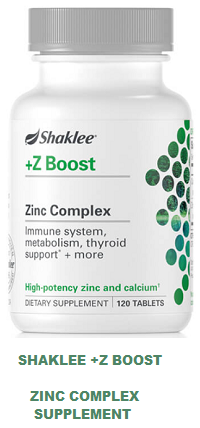 Although technically classified as a trace mineral, that is, only a very small amount of which is needed for health, Zinc is considered essential to health and wellness.
Although technically classified as a trace mineral, that is, only a very small amount of which is needed for health, Zinc is considered essential to health and wellness.
One major reason for this is that almost every cell inside the body contains zinc. The activities of nearly 100 different enzymes are stimulated by the presence of the dietary mineral, zinc.
Enzymes are the substances that cause various chemical reactions to take place inside the body.
For example, zinc helps ensure the immune system remains healthy and able to fight off disease. It accomplishes this because it helps produce and activate T-lymphocytes, one type of white blood cell that the body uses to help fight infection.
Zinc plays many other key roles within the body as well.
It is involved in the complex process of healing wounds, for example.
Without zinc, a person's sense of smell and taste may become diminished.
Zinc is also involved in the synthesis of DNA. One of zinc's biggest responsibilities is to help ensure that a person's various stages of growth occur along normal guidelines, beginning with pregnancy and continuing through childhood and adolescence. It is also needed to ensure that the reproductive system develops normally.
Zinc facilitates the movement of Vitamin A from the liver and it also acts as an antioxidant, protecting the cells from the potential damage that can be caused by free radicals.
Sources of Zinc
Many foods contain some amount of zinc. This makes it pretty easy to get the basic amount you need just from your diet. As far as best food source on a per-serving basis is concerned, oysters contain the greatest amount. Unfortunately, at least to this Florida boy, oysters are not part of the common diet. I guess that's okay because red meat and poultry are two good sources and they're popular choices among many cultures. Whole grains, nuts, beans, some seafood, dairy products and fortified foods are also good sources of zinc.
Zinc Overdose
Unlike most other vitamins and minerals, care must be taken not to consume too much zinc. This is easy to do if a person eats a lot of fortified foods and also takes a zinc supplement. Doing so impedes the body's ability to properly absorb the important dietary mineral copper which also is needed to keep the immune system operating correctly. Too much zinc can also impair the formation of blood cells.
Since zinc is vital during all stages of growth, infants up to 3 years of age should get 3 mg/day. Children need more and should increase intake to 5 mg/day. And adolescents need even more. They should get at least 8 mg/day. Adult men and pregnant women need 11 mg/day while adult women who are not pregnant or breastfeeding need only 9 mg/day. Finally those women who are lactating should up their intake of zinc to 12 mg/day.
Zinc Deficiency
Some people cannot properly absorb zinc and this situation could lead to a zinc deficiency.
A zinc deficiency could also occur when people do not increase their intakes accordingly as they go through the different growth stages. The most notable symptom of a zinc deficiency is retarded growth. Sexual function and capability can also be delayed. Diarrhea, loss of hair, wounds that heal slowly, impotence, lethargy, and trouble with the sense of taste, loss of appetite, diminished immune capability and lesions that appear on skin and the eyes are other possible symptoms of a zinc deficiency. Another condition linked to a zinc deficiency is Angular Cheilitis, painful and unsightly cracks at the corners of the mouth.
Zinc Supplements
Although easy to obtain from a normal diet, many people are interested in zinc because of its ability to 'fire up' the immune system. It is not hard to find zinc supplements. However, taking the best daily multivitamin you can find will probably suffice to meet your body's need for zinc.
Think of zinc as nature’s metabolic workhorse. It helps the immune system fight off invading bacteria and viruses.* It also works as a trigger for over 200 different enzymes that are present in virtually every cell of your body and are vital to supporting your immune function, energy production, healthy metabolism, thyroid health, protein digestion, and more.*
Shaklee Zinc Complex


